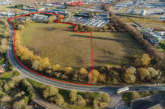
The consultation on the revised draft Greater Manchester Spatial Framework is now underway. Matthew Sobic, Planning Director at Savills Manchester explores what it could mean for the city.
Savills welcomes the draft Greater Manchester Spatial Framework (GMSF), as it is an important step in ensuring that the whole of the City Region has a strategic plan that paves a way forward for its continued development. However, we consider that it would have been beneficial for the GMSF to have been in place before the next Mayoral elections in May 2020 for the next term of office or administration to focus on its delivery. In that sense, it is critical that there are no further rewrites or delays to the submission of the GMSF for examination.
We appreciate the challenge that the Mayor faces as a new political entity which means the draft is written as a document that intends to please everybody, but runs the risk of not delivering on its required objectives.
It should deliver a vision for economic growth, regeneration of the region’s towns, transport solutions to enable ease of travel for all, and housing ideas to meet the housing requirements in a speedily and affordable manner. We believe the draft achieves those aims, and to that extent is a successful rewrite of its immediate predecessor. However, it fails only in that it lacks vision in how Manchester might lead the way in being a green, sustainable and prosperous city, embracing the technological opportunities that can help meet the needs of the next 15-20 years.
Housing mix
Whilst the objective to deliver development in accessible town centres and at a high density is positive, it does not set out how the required housing mix will be delivered in those centres. Will the delivery of high density development in all town centre locations meet the requirements of the markets that they are intended to serve?
We believe that further intervention will be required from the public sector to aid the delivery of schemes on brownfield sites in town centre locations to deliver development in town centre areas that the GMSF requires, in particular in areas that the market is not currently active in. The GMSF should also provide clarity on the areas and allocations within town centres that will deliver the significant levels of development activity that it aims to create.
The aim of the plan must be to allow people to realise their ambitions, and so foster an environment in which those aspirations can be achieved. Manchester has a long way to go yet to fulfil its promise that it will be a net contributor to the Treasury. In scaling back its previous aspirations for growth, the GMSF inadvertently scales back its economic growth ambitions.
Long-term
The higher housing target delivery should have been used to benchmark the City Region’s aims for long-term growth and vitality. This would have been consistent with Central Government’s recommendation that higher housing delivery targets should continue to be utilised to support economic growth aspirations.
Overall, whilst we consider that the draft GMSF is a positive step forward, the increased challenge of delivering significant growth within the existing urban fabric will require a new set of tools and funding to ensure Greater Manchester meets its growth targets. Delivering transformational growth will be a once in a generational opportunity, and getting the right plan in place will be the key component if Greater Manchester is to deliver on its economic and housing growth ambitions.









